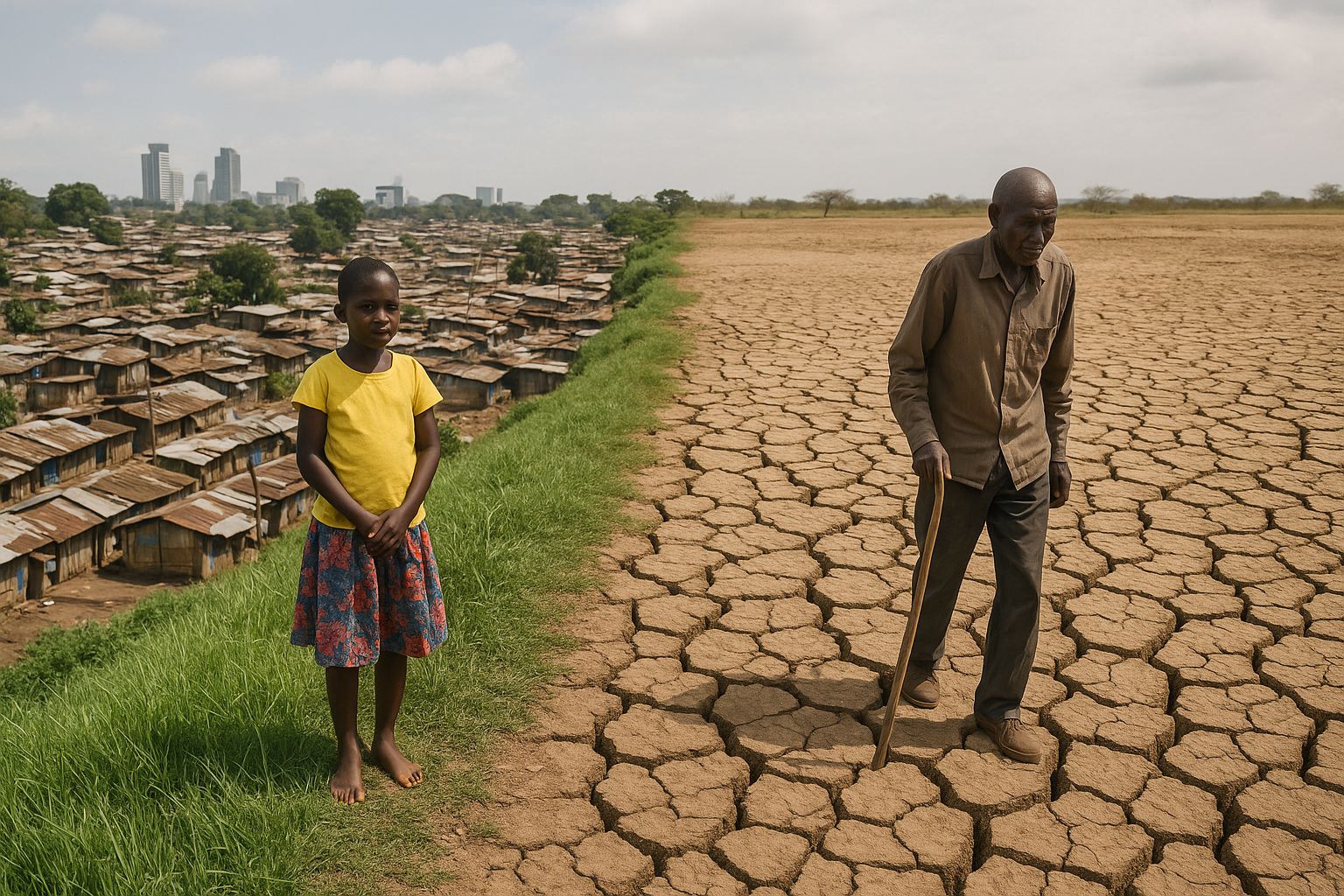Climate Anxiety and Health: Why Heat Waves Are Causing Depression
As global temperatures continue to rise, heat waves are becoming more frequent and intense, sparking a new wave of concern known as climate anxiety. This psychological phenomenon is characterized by feelings of helplessness, fear, and distress over the future of our planet. While climate anxiety can affect anyone, it is particularly prevalent among young people who are increasingly aware of the environmental challenges ahead. The intersection of climate change and mental health is gaining attention as researchers unveil the profound impact that environmental stressors, like heat waves, have on our psychological well-being. This article delves into how these sweltering conditions contribute to depression and other mental health issues, exploring the intricate links between climate change and our emotional health.
Understanding Climate Anxiety: A Psychological Perspective

Climate anxiety is a relatively new concept in psychological research, yet it is rapidly gaining traction as a legitimate mental health concern. It stems from the overwhelming awareness of climate change and its potential catastrophic impacts on the planet and future generations. Psychologists suggest that this anxiety is not merely a fear of environmental changes but includes a profound existential dread about the survival of humanity. The uncertainty and perceived lack of control over the situation exacerbate these feelings, leading to heightened stress and anxiety levels. Understanding the psychological underpinnings of climate anxiety is crucial for developing effective coping strategies and interventions to mitigate its impact on mental health.
Heat Waves: The Silent Mental Health Crisis

Heat waves, defined as prolonged periods of excessively hot weather, are more than just a physical health threat; they are also a silent mental health crisis. Research indicates that extreme heat can exacerbate mental health issues, leading to increased hospital admissions for psychiatric conditions. The physiological stress caused by high temperatures can trigger or worsen symptoms of depression and anxiety. Additionally, heat waves can disrupt sleep patterns, further contributing to mood disorders. As climate change continues to increase the frequency and intensity of heat waves, understanding their impact on mental health becomes increasingly important for public health planning and intervention.
The Biological Impact of Heat on Mental Health

The human body is finely tuned to operate within a specific temperature range, and extreme heat can disrupt this balance, affecting mental health. High temperatures can lead to dehydration, heat exhaustion, and heatstroke, which can have direct and indirect effects on brain function. Dehydration, for instance, can impair cognitive abilities and exacerbate feelings of fatigue and irritability. Moreover, heat-induced stress can trigger the release of cortisol, a hormone associated with stress, which in high levels, can contribute to anxiety and depression. Understanding these biological mechanisms is vital for developing strategies to protect mental health during heat waves.
Socioeconomic Factors: Disparities in Climate Impact

The impact of heat waves on mental health is not uniform across populations; socioeconomic factors play a significant role in determining vulnerability. Individuals in low-income communities often lack access to air conditioning, green spaces, and other resources that can mitigate the effects of extreme heat. These communities are also more likely to experience higher levels of pollution and have limited access to mental health services. The stress of living in such conditions can compound the effects of climate anxiety, leading to a higher prevalence of depression and other mental health disorders. Addressing these disparities is crucial for developing equitable climate adaptation strategies.
Youth and Climate Anxiety: A Generational Challenge

Young people are at the forefront of the climate movement, yet they are also particularly vulnerable to climate anxiety. The constant exposure to alarming news about climate change can lead to feelings of hopelessness and despair. For many young individuals, the fear of an uncertain future can overshadow their personal and professional aspirations, contributing to a sense of paralysis and depression. Schools and communities play a crucial role in providing support and fostering resilience among young people, helping them channel their anxiety into positive action and advocacy for environmental change.
The Role of Media in Shaping Climate Perceptions

Media coverage of climate change can significantly influence public perceptions and, consequently, mental health. Sensationalized headlines and images of natural disasters can heighten anxiety and fear, while a lack of coverage can lead to complacency and denial. Balanced reporting that includes solutions and success stories can help mitigate climate anxiety by empowering individuals with knowledge and a sense of agency. Media literacy is also essential, enabling individuals to critically assess the information they consume and its impact on their mental health.
Building Resilience: Strategies for Coping with Climate Anxiety

Developing resilience is key to coping with climate anxiety and its effects on mental health. Strategies such as mindfulness, cognitive-behavioral therapy, and community engagement can help individuals manage their anxiety and foster a sense of control. Building social networks and participating in community-based environmental initiatives can also provide support and reduce feelings of isolation. Encouraging open conversations about climate change and mental health can help normalize these experiences and promote collective resilience in the face of environmental challenges.
Policy Interventions: Addressing the Mental Health Impacts of Climate Change

Governments and policymakers have a critical role in addressing the mental health impacts of climate change. Integrating mental health considerations into climate adaptation and mitigation strategies can help protect vulnerable populations. This includes investing in mental health services, creating heat action plans, and improving access to cooling resources in underserved communities. By prioritizing mental health in climate policy, governments can help build more resilient societies capable of withstanding the psychological impacts of environmental change.
A Call to Action for a Sustainable Future

The relationship between climate change, heat waves, and mental health is complex and multifaceted, requiring a coordinated response from individuals, communities, and policymakers. As we continue to grapple with the realities of a warming planet, it is essential to recognize and address the mental health dimensions of climate change. By fostering resilience, promoting equitable policies, and supporting mental health initiatives, we can mitigate the impact of climate anxiety and work towards a sustainable future that prioritizes both environmental and psychological well-being.